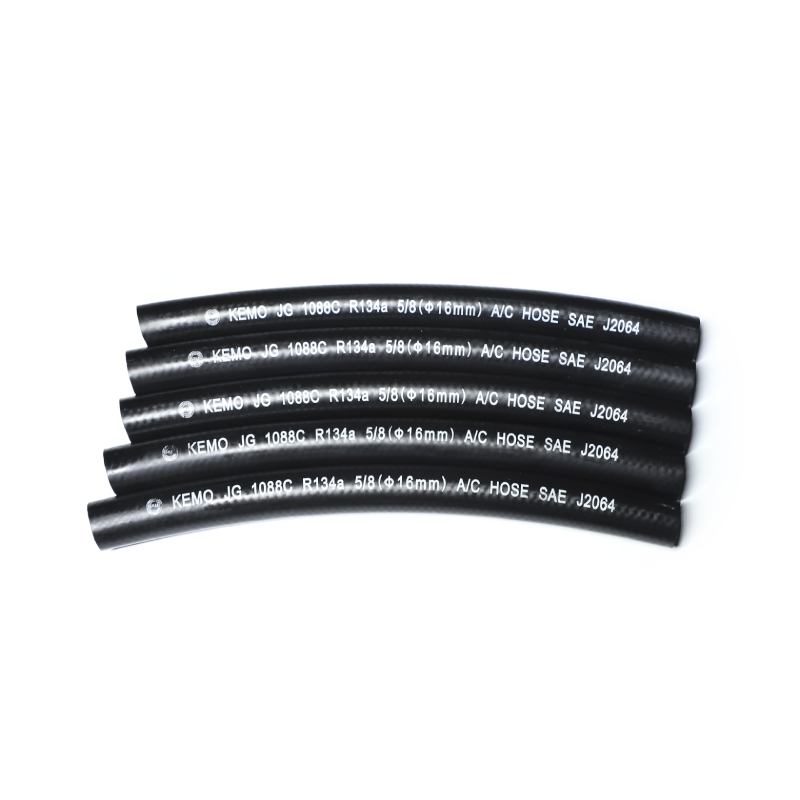flexible refrigeration lines
nóv . 12, 2024 10:54 Back to list
flexible refrigeration lines
The Importance and Applications of Flexible Refrigeration Lines
In today’s fast-paced world, effective refrigeration systems are critical in various industries, from food preservation to pharmaceuticals and industrial processes. One of the key components that enhance the efficiency and adaptability of these systems is the use of flexible refrigeration lines. These lines play an essential role in the design and operation of refrigeration systems, offering numerous advantages that are crucial for modern applications.
Understanding Flexible Refrigeration Lines
Flexible refrigeration lines are specially designed tubing or piping that connects different components of a refrigeration system. Unlike traditional rigid pipes, these flexible lines are made from materials that can withstand temperature variations and pressure changes while being able to bend and flex to accommodate different layouts and installations. Common materials used for these lines include rubber, polyethylene, and metal alloys, each chosen for their durability and thermal efficiency.
Advantages of Flexible Refrigeration Lines
1. Ease of Installation One of the most significant benefits of flexible refrigeration lines is their ease of installation. Unlike rigid pipes that require precise measurements and potentially complex fittings, flexible lines can be maneuvered into place with relative ease. This attribute considerably reduces the time and labor costs associated with installation.
2. Adaptability In environments where space is limited or configurations are constantly changing, flexible refrigeration lines provide an adaptable solution. They can easily be bent or rerouted without the need for specialized equipment, making them ideal for retrofitting existing systems or accommodating new equipment and layout changes.
3. Reduced Risk of Damage The flexibility of these lines also minimizes the risk of breakage due to vibrations, shifts in position, or thermal expansion. Traditional rigid pipes are more susceptible to such stressors, which can lead to costly leaks or system failures. In contrast, the flexibility of these lines allows them to absorb shocks and movements, promoting reliability and longevity.
4. Improved Thermal Efficiency Many flexible refrigeration lines are engineered to provide superior thermal insulation. This feature helps maintain the optimal temperature within the refrigeration system, reducing energy consumption and enhancing overall efficiency. As industries aim for sustainability, using energy-efficient components is becoming increasingly vital, making flexible lines an attractive choice.
flexible refrigeration lines

Applications of Flexible Refrigeration Lines
Flexible refrigeration lines are utilized across several industries, demonstrating their versatility and importance. Here are some notable applications
1. HVAC Systems In heating, ventilation, and air conditioning, flexible refrigeration lines are essential for connecting indoor and outdoor units efficiently. They allow for the integration of various configurations, especially in residential and commercial settings with space constraints.
2. Food and Beverage Industry The food industry requires stringent temperature control to ensure food safety and prolong shelf life. Flexible refrigeration lines provide the necessary flexibility to set up complex refrigeration systems in supermarkets, restaurants, and food processing plants where layout changes are common.
3. Pharmaceuticals Temperature-sensitive medications and vaccines require a stable environment for storage and transport. Flexible refrigeration lines facilitate the creation of customized refrigeration setups to meet specific storage needs while allowing for easy modifications as requirements evolve.
4. Refrigerated Transport The logistics of transporting perishable goods necessitate reliable refrigeration systems. Flexible lines are crucial in refrigerated trucks and shipping containers, enabling efficient refrigeration without contributing to weight or space constraints.
Conclusion
In conclusion, flexible refrigeration lines have revolutionized the way refrigeration systems are designed and implemented. Their advantages, including ease of installation, adaptability, reduced damage risk, and improved thermal efficiency, make them indispensable across various industries. As technology continues to advance, the role of flexible refrigeration lines is likely to expand further, paving the way for more innovative cooling solutions that meet the demands of an ever-evolving marketplace. From ensuring food safety to preserving critical pharmaceuticals, flexible refrigeration lines are fundamental to maintaining the integrity of temperature-sensitive products and systems.
